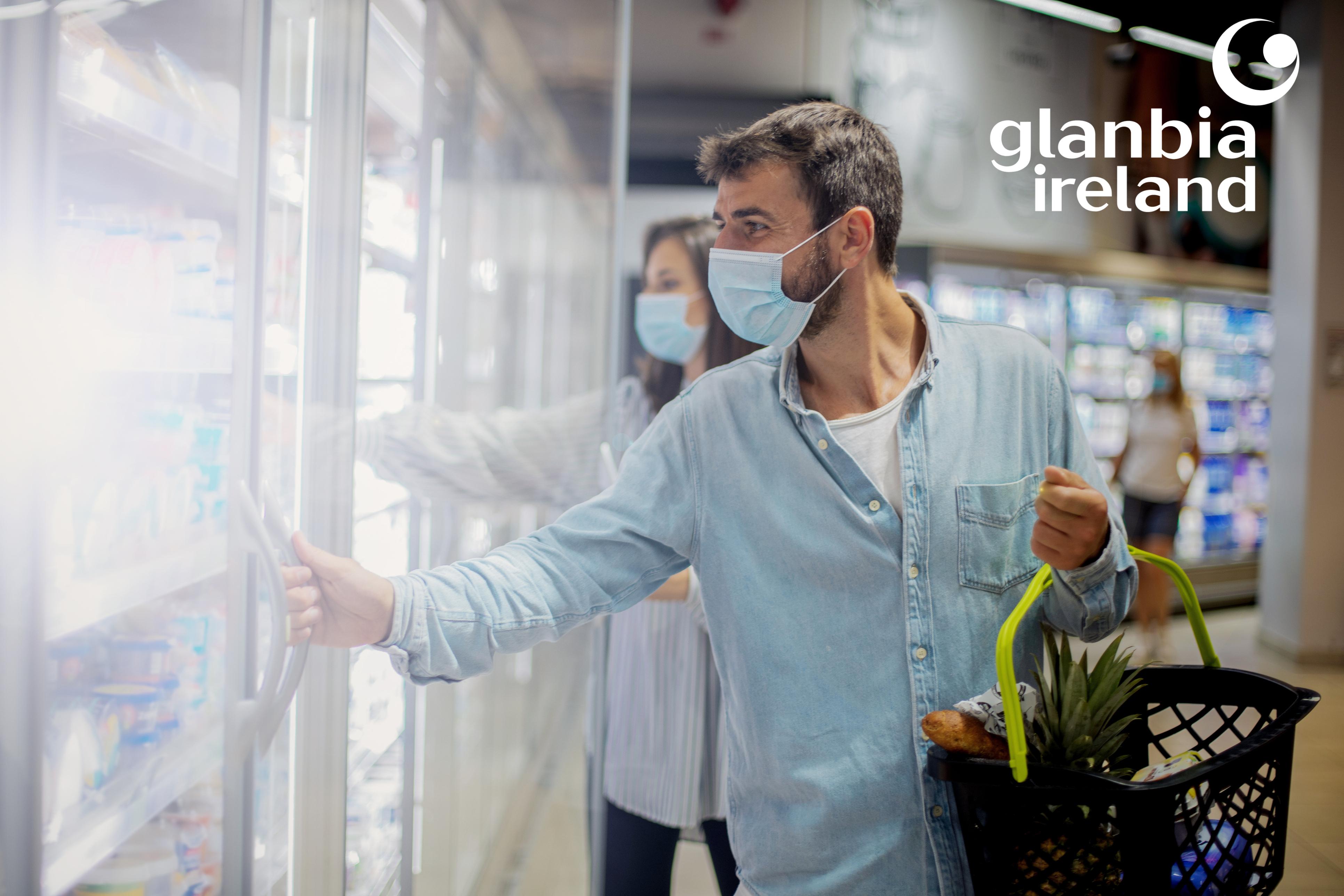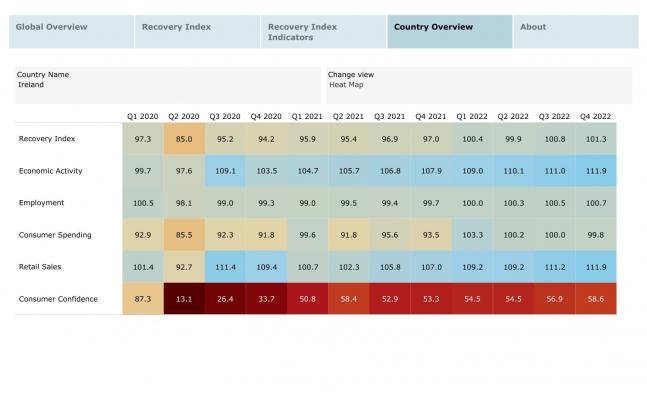
The impact of the vaccination rollout on consumer demand and behaviours by Ulrik Nyberg, Glanbia Ireland Market Insights Manager
The rollout of COVID-19 vaccines is a game changer in many ways. As infection rates drop, restrictions are lifted and people start feeling more secure, consumer demands and behaviours change in the “new normal”.
Some consumer behaviour changes from early-2020 will remain, but others were simply fads. Here we look at some key current trends as the vaccination rollout successfully continues.
Vaccination rates are steadily rising
The vast majority of immunity acquired so far in the Irish population has come through the vaccine rollout. The rest has been obtained through people who have contracted COVID-19 and recovered from it (Source: RTÉ News, 9th June).
As per 7th June, close to 55% of the Irish population had received a first dose of a COVID-19 vaccine. According to Taoiseach Micheál Martin the vaccination programme continues to roll out "very effectively and efficiently". Close to 26% were fully vaccinated, with almost 3 million vaccine doses administered overall. By September, every Irish adult who wants a vaccine should be fully vaccinated.
So far there has been about 90% up-take of vaccines among eligible adults. This is a remarkably high level. The HSE’s Chief Clinical Officer Dr Colm Henry, told RTÉ News, it makes Ireland "the envy of Europe". In countries including the US and France, up-take has been lower.
Consumer confidence is increasing
Linked to increasing vaccinations and declining virus incidence, Irish consumer confidence alongside other recovery indicators is on the rise. While the confidence level remains lower than in 2019, we are seeing steady progress.
Ireland Economic Recovery Heat Map

KBC Bank reported that Irish consumer confidence index was up to 77.9 in May 2021 (a 23-month high) compared to just 52.3 twelve months earlier.
With increasing confidence, consumers are now starting to plan for and do things that they have not done since before the pandemic. Booking of foreign holidays and having meals/drinks in restaurants are just some of the things we see happening as consumers’ levels of freedom and mobility increase.
Kantar reported that UK shoppers made 58 million more visits to the supermarket in May 2021 compared to a year ago. As lockdown measures have eased, people have returned to more normal habits and we can see that reflected in for example grocery sales. The pattern in Ireland is similar.
Consumer demand
The underlying consumer drivers of product choice have changed in the last 18 months. Consumers across the world have suffered fundamental disruption to their lifestyles and finances. Anxiety at a personal level now overrides concern for the wider world or pursuing sophisticated product attributes according to research company GlobalData.
Top of GlobalData’s list of global economic predictions for 2021 is that the shift towards mass vaccination will fuel economic growth. This is intimately linked to the reopening of markets, consumer confidence and increased consumer demand.
Consumer trends and economic growth
We all remember the lockdown days in early 2020 when many of us started making banana bread and having drinks in front of computer screens, chatting to friends we would normally see in pubs and restaurants or in our homes. Walking the dog was a privilege and not a chore.
According to GlobalData, many of these then new at-home habits were fads that peaked in March 2020. Examples are home workouts, Zoom quizzes, and sharing of baking recipes.
Some developments expected to take years before the pandemic have taken place over just a couple of months and this development continues. Online shopping levels are expected to remain high with convenience, time-saving, minimal social contact and variety/choice available among the main advantages experienced compared to in-store shopping.
Other features of the post-pandemic world (Source: GlobalData):
- We will stay at home more
- Staying healthy will be a priority
- The way we treat ourselves will change
- We will be money-conscious
- Many of us will be pre-occupied with hygiene
- Sustainability will get more focus
In addition to the vaccination rollout, support measures from governments is the other key factor for economic growth. While there are many positive signs linked to vaccination rollout globally, the likelihood of additional COVID-19 waves with new virus strains is apparent in many countries. This would of course affect consumer confidence negatively and slow down market recovery, but for now there are many positive developments to point out.